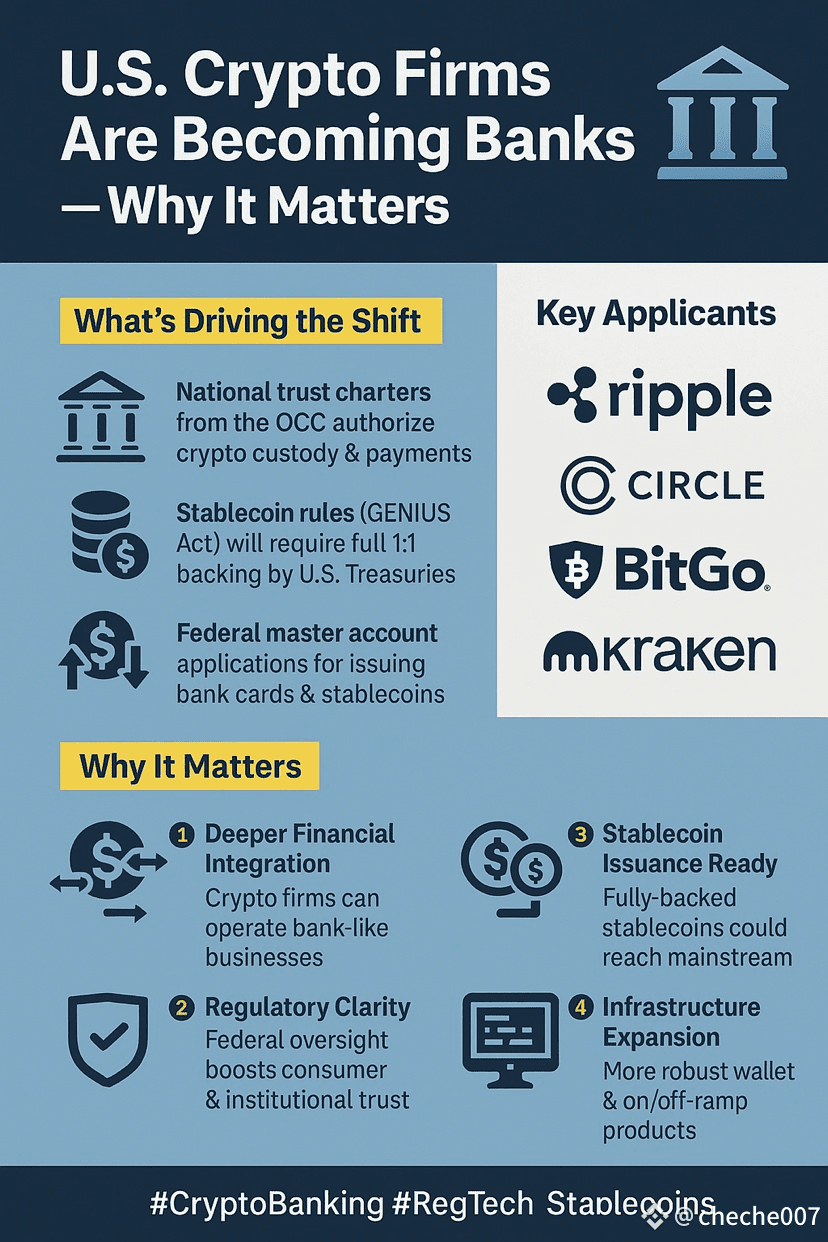Ripple, Circle, BitGo, and Kraken are racing to secure national trust bank charters, signaling a historic pivot: crypto companies are no longer rejecting traditional finance—they’re embracing it. Here’s what’s driving this shift—and why it matters to you.
🔍 What’s Going On
National trust charters from the OCC let crypto firms offer banking services—like custody and payments—without state licensing.
Ripple has applied for a Federal Reserve master account to hold reserves directly at the Fed.
Circle and BitGo are positioning as regulated financial institutions, while Kraken plans to launch bank cards.
This comes amid the pending GENIUS Act, which would require stablecoin issuers to maintain 1:1 reserves in U.S. Treasuries .
📈 Why It’s a Game-Changer
Deeper Financial Integration
Crypto firms can now offer bank-like services—custody, stablecoins, payments—without relying on middlemen.Regulatory Clarity & Consumer Trust
Federal charters mean strong oversight, boosting legitimacy and attracting institutional and retail users alike.Stablecoin Issuance Ready
With trust charters in hand, these firms can issue fully-backed stablecoins, a key step toward mass adoption .Infrastructure Expansion
Expect smarter wallet products, seamless on/off ramps, and faster payment solutions built directly on licensed bank frameworks.
🧠 What This Means for You
📌 Retail Users can expect more secure tools with FDIC-like protections
⚙️ Developers benefit from integrated banking APIs and regulated rails
💼 Traders & Businesses get better access to compliance-ready custody and stablecoin services
💬 Let’s Talk
Which regulated crypto bank feature are you most excited about?
Master account-backed stablecoins
Native crypto debit/credit cards
Fully compliant custody solutions
Seamless fiat on/off ramps
Drop your pick and why 👇
